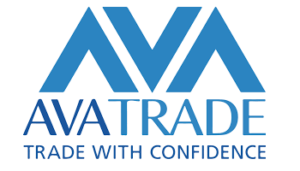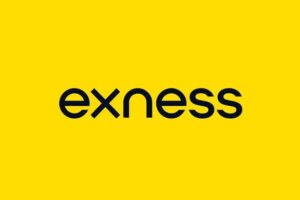Looking to elevate your trading experience in 2026 with the best CFD brokers? This article is perfect for you. With so many options available, selecting the best broker can feel overwhelming, but we’re here to make it easier for you. We’ve meticulously analyzed the top six CFD brokers of the year, taking into account their fees, features, and trading tools to guide you in making a well-informed choice.
Choosing the right CFD broker is crucial for reaching your trading goals, regardless of whether you’re just starting or have extensive experience. We’ll guide you to the top platforms that will enable you to trade efficiently, reduce risks, and achieve your financial aspirations.
Overview of CFD Trading
CFD trading, which stands for Contracts for Difference, allows traders to engage in speculation regarding the price movements of a range of financial instruments without the requirement of possessing the underlying assets.
This approach requires traders to forecast whether the price of an asset, such as stocks, currencies, or commodities, will increase or decrease, subsequently entering into a contract based on that forecast. Should the price shift in the trader’s favour, they will realize a profit; conversely, if it moves against them, they will face a loss.
The benefits of CFD trading include the capacity to trade on margin, allowing traders to initiate positions with only a portion of the total value, which can potentially enhance profits.
Furthermore, CFDs offer the versatility to take long (buy) or short (sell) positions, facilitating profit opportunities in both ascending and descending markets.
Nonetheless, there are notable drawbacks, including the risk associated with high leverage, which can exacerbate losses. Additional disadvantages encompass overnight fees for maintaining positions and the heightened risk linked to trading on less regulated platforms, where counterparty risk—the possibility that the broker may fail to fulfil its obligations—is more pronounced.
Essential terminology in CFD trading includes leverage, which permits traders to manage a substantial position with a smaller capital outlay, and pips, which quantify changes in currency values.
It is also vital for traders to grasp concepts such as lot sizes—the quantity being traded—and the significance of stop-loss orders to mitigate potential losses. Understanding these fundamentals is essential for anyone contemplating CFD trading, as it equips them to navigate both the opportunities and risks inherent in this market.
How to Choose the Best CFD Broker?
When selecting the best CFD broker for your requirements, it’s crucial to take into account various factors to guarantee a favourable trading experience. The main considerations consist of costs, platform functionalities, and user satisfaction. Search for brokers that provide competitive spreads and minimal commissions, since elevated fees can diminish your earnings.
The trading platform must be easy to navigate, offering key functionalities such as live quotes, technical analysis instruments, and dependable order fulfilment. A solid platform will additionally offer mobile trading features, enabling you to trade while on the move.
When looking for the top CFD brokers, regulation and security are crucial factors. Make sure the broker is overseen by trustworthy financial entities such as the FCA, ASIC, or CFTC. Regulation offers a degree of safety by making certain that the broker complies with defined standards and procedures.
This involves separating client funds from the broker’s operational funds, which safeguards your investment in the event of financial difficulties on the broker’s side.
It’s important to take into account the kinds of assets that can be traded through CFDs. Top CFD brokers offer a diverse selection of trading instruments, such as forex, stocks, indices, commodities, and cryptocurrencies.
A varied selection enables you to diversify your portfolio and assess different market opportunities, assisting in trading risk management and optimizing potential returns.
List of Top CFD Brokers [2026]
1. AvaTrade

AvaTrade is an online trading platform that began in 2006, enabling users to trade in various financial markets such as Forex, commodities, indices, stocks, bonds, ETFs, and cryptocurrencies. It’s favoured for its easy-to-use platform and a wide range of trading tools.
Users can trade on platforms like MetaTrader 4, MetaTrader 5, and the AvaTradeGO app. With regulation from leading financial authorities, AvaTrade offers a secure environment and different account types, including Islamic accounts, catering to both novice and seasoned traders.
Pros and Cons of AvaTrade
Pros
- Trusted due to regulation by multiple financial authorities.
- Offers a diverse selection of trading tools and instruments.
- Offers customer support 24 hours a day, five days a week, in 14 languages.
- Enables mobile trading through the AvaTradeGO app.
- Islamic (swap-free) accounts are available, adhering to Sharia law.
Cons
- An inactivity fee is applied after three months without any usage.
- The desktop version of AvaOptions can be slow and challenging to use.
- Does not accept traders from the US due to regulatory issues.
- The lack of FCA regulation might impact perceptions of market fairness.
AvaTrade Commissions and Fees
AvaTrade uses a spread-only model, so there are no additional commissions; costs are part of the spread, which is the difference between buying and selling prices. Sometimes, these spreads might be higher than those of other brokers.
If an account is inactive for three months, a $50 quarterly inactivity fee is charged, and there is also an administration fee if the account is inactive for 12 months.
2. FXChoice

FXChoice is an online brokerage that provides access to a diverse array of financial markets, including Forex, commodities, and Contracts for Difference (CFDs). It is particularly recognized for its exclusive support of the MetaTrader platforms (MT4 and MT5), making it a strong contender for traders seeking a dependable broker with various account options and favourable trading conditions.
This trusted CFD broker offers leverage of up to 1:200 and features tight spreads beginning at 0.1 pips on its ECN accounts. Regulated by the International Financial Services Commission (IFSC), FXChoice also includes several beneficial features such as negative balance protection, a variety of payment methods, and the presence of a demo account is attractive to both inexperienced and experienced traders.
Pros and Cons of FXChoice
Pros
- Regulated by the IFSC
- Provides leverage up to 1:200
- Compatible with MetaTrader 4 and MetaTrader 5
- Facilitates ECN trading
Cons
- Does not serve traders from the United States.
- Withdrawal processing may take 4-5 days for wire transfers.
FXChoice Fees and Commissions
In terms of fees and commissions, FXChoice primarily utilizes tight spreads on its ECN accounts, starting from 0.1 pips, while standard accounts feature slightly wider spreads. The broker charges a commission of $3.50 per side per lot for ECN accounts.
Furthermore, FXChoice enforces an inactivity fee of $10 per month after 90 days without trading activity, highlighting the importance for traders to remain active to avoid additional charges. Its fee structure is regarded as competitive when compared to other brokers in the industry.
3. Admirals

Admirals, previously referred to as Admiral Markets is a reputable online brokerage that has established a significant presence in the CFD and forex trading market since 2001. It provides traders with a range of trading instruments, such as Forex, commodities, indices, stocks, and cryptocurrencies, via well-known platforms like MetaTrader 4 (MT4) and MetaTrader 5 (MT5).
Admirals are closely monitored by respected organizations, such as the FCA and CySEC, providing a safe trading atmosphere. The regulated CFD broker is recognized for offering an extensive selection of educational materials, 24/7 customer support, and adaptable account choices, making it an excellent option for both novice and seasoned traders.
Pros and Cons of Admirals
Pros
- Robust regulatory supervision
- Available on MT4 and MT5, equipped with sophisticated functionalities.
- Customer support available around the clock
- Facilitates different forex trading strategies
- Provides top-notch educational materials
- Appropriate for every level of trader.
Cons
- Rules specific to entities can change trading conditions.
- Fees on certain deposit options
- A few unfavourable customer reviews about assistance
- Deposits made through e-wallets might involve processing charges.
Commissions and Fees for Admirals
Concerning commissions and fees, Admirals implement a diverse fee arrangement based on the account type and the assets being traded. On the Zero MT4 account, forex and metals incur a commission between $1.8 and $3.0 for each lot. Additionally, there are particular charges for trading indices, energy, and stocks.
Moreover, a fee for overnight or swap is applied when positions are maintained for over a day. Admirals provides an Islamic account option that removes swap fees and substitutes them with an administrative fee, addressing various trader requirements while ensuring cost transparency.
4. Interactive Brokers

Interactive Brokers is a prominent online brokerage firm recognized for its extensive array of investment opportunities, including Contracts for Difference (CFDs). Established in 1978, the firm provides access to a multitude of global markets and features sophisticated trading platforms such as Trader Workstation (TWS), which caters to the needs of active and professional traders.
The firm is regulated by leading authorities, including the SEC, FINRA, and CFTC, ensuring a high standard of security and transparency, thus positioning it as a trustworthy option for trading activities.
Pros and Cons of Interactive Brokers
Pros
- Advanced technology and trading platforms
- Comprehensive research tools
- A diverse range of trading products
- Strong regulatory oversight and security
Cons
- Significant inactivity fee
- Complicated pricing structure
Commission and Fee Structure of Interactive Brokers
Interactive Brokers employs a tiered pricing model that varies according to trading volume. For stocks, ETFs, and warrants, the fees range from $0.0035 to $0.0005 per share, contingent on the monthly trading volume. For options and futures, fees decrease with increased trading volumes.
Clients are entitled to one free withdrawal per month; any additional withdrawals will incur fees that differ based on the method and currency used. An inactivity fee applies if the account balance falls below $2,000 and the account generates less than $20 in commissions each month.
It is advisable to consult the broker’s website for the most current information regarding costs and fees.
5. Pepperstone

Pepperstone is one of the best CFD brokers in our list. It is known for offering competitive pricing, quick trade execution, and dependable services. Established in 2010, it provides access to a diverse range of markets such as foreign exchange, commodities like oil and gold, cryptocurrencies, and stock indices.
It is regulated by the FCA and ASIC, ensuring a secure environment for traders. With platforms like MetaTrader 4 and 5 available, Pepperstone is ideal for traders who want cost-effective solutions and excellent service.
Pros and Cons of Pepperstone
Pros
- Competitive pricing with low fees
- Fast execution of trades
- Strong regulatory framework
- Multiple trading platforms are available
Cons
- Limited customer support options
- Fees for inactive accounts
Pepperstone’s Fees and Costs
Pepperstone offers a fee structure that is considered competitive. The Razor account offers spreads that begin at 0.0 pips and imposes a commission of $3.50 for each trade per lot. The Standard account has wider spreads but does not charge commissions.
While deposits and most withdrawals are free of charge, there is a $15 inactivity fee after six months of no account activity.
6. Exness

Exness is an international brokerage firm introduced in 2008 and recognized for its extensive selection of trading instruments, which includes more than 120 currency pairs, stocks, cryptocurrencies, and commodities.
This is one of the most trusted CFD brokers and is regulated by several financial authorities, including CySEC and the FCA, ensuring a secure and trustworthy trading environment. Exness offers flexible leverage options of up to 1:2000, along with features such as instant withdrawals, low commissions, and a variety of account types tailored to meet diverse trading requirements, making it a favoured choice among traders globally.
Pros and Cons of Exness
Pros
- High-leverage options available
- Instant withdrawal capabilities
- Robust regulatory oversight
- Multiple trading platforms, including MT4 and MT5
- Low minimum deposit thresholds
Cons
- Limited educational materials
- Higher minimum deposit requirements for certain accounts
Exness Fees and Commissions
Exness primarily utilizes tight spreads, which can be as low as 0.0 pips on select accounts. Most account types do not incur commissions; however, specific accounts, such as the Raw Spread account, do have commissions starting at $3.50 per side per lot.
Furthermore, Exness does not impose fees for deposits or withdrawals, aiding traders in managing their expenses effectively. Traders need to recognize that higher leverage options may entail increased risk, particularly for those with smaller deposit amounts.
Tips for New CFD Traders: How to Get Started
For novice CFD traders, it’s important to begin with a strong grasp of the fundamentals of CFD trading. This involves understanding that CFDs (Contracts for Difference) enable you to bet on price changes without possessing the real asset.
First, get acquainted with essential terms and concepts such as leverage, margin, and spread, which are crucial for making knowledgeable trading choices.
To effectively manage risks and evade frequent mistakes, traders ought to implement strategies like placing stop-loss orders to cap potential losses and steering clear of over-leveraging, as it can intensify both profits and losses.
It is recommended to begin with a demo account, which enables you to practice and familiarize yourself with the trading platform without putting real money at risk. Understanding both fundamental and technical analysis can improve your ability to anticipate market trends and execute more knowledgeable trades.
Gaining confidence and expertise in trading requires time. Begin by trading minor positions to acclimate to the market dynamics. Concentrate on creating a trading strategy that encompasses your risk appetite, financial objectives, and tactics for various market scenarios.
As you accumulate experience, you can progressively raise your trade size and enhance your strategies according to your trading results.
Conclusion
Finding the best CFD broker is essential for a successful trading experience. We have evaluated the top six CFD brokers by considering various aspects such as fees, platform features, regulatory compliance, and customer support.
Brokers like Pepperstone, AvaTrade, Exness, and Interactive Brokers were chosen for their competitive spreads, robust regulatory frameworks, and user-friendly interfaces. These best CFD brokers provide a wide array of trading instruments, including forex, stocks, and cryptocurrencies, catering to various trading styles and preferences.
When choosing the best CFD broker, it’s important to take into account the broker’s regulatory standing to ensure your funds are secure, as well as the fees and commissions that could impact your profitability. Additionally, consider the variety of trading tools and instruments offered on their platform.
Evaluating the quality of customer service is also crucial, particularly for newcomers who may require immediate assistance. The right broker should align with your trading objectives and create a secure, efficient environment that supports your success in the financial markets.

